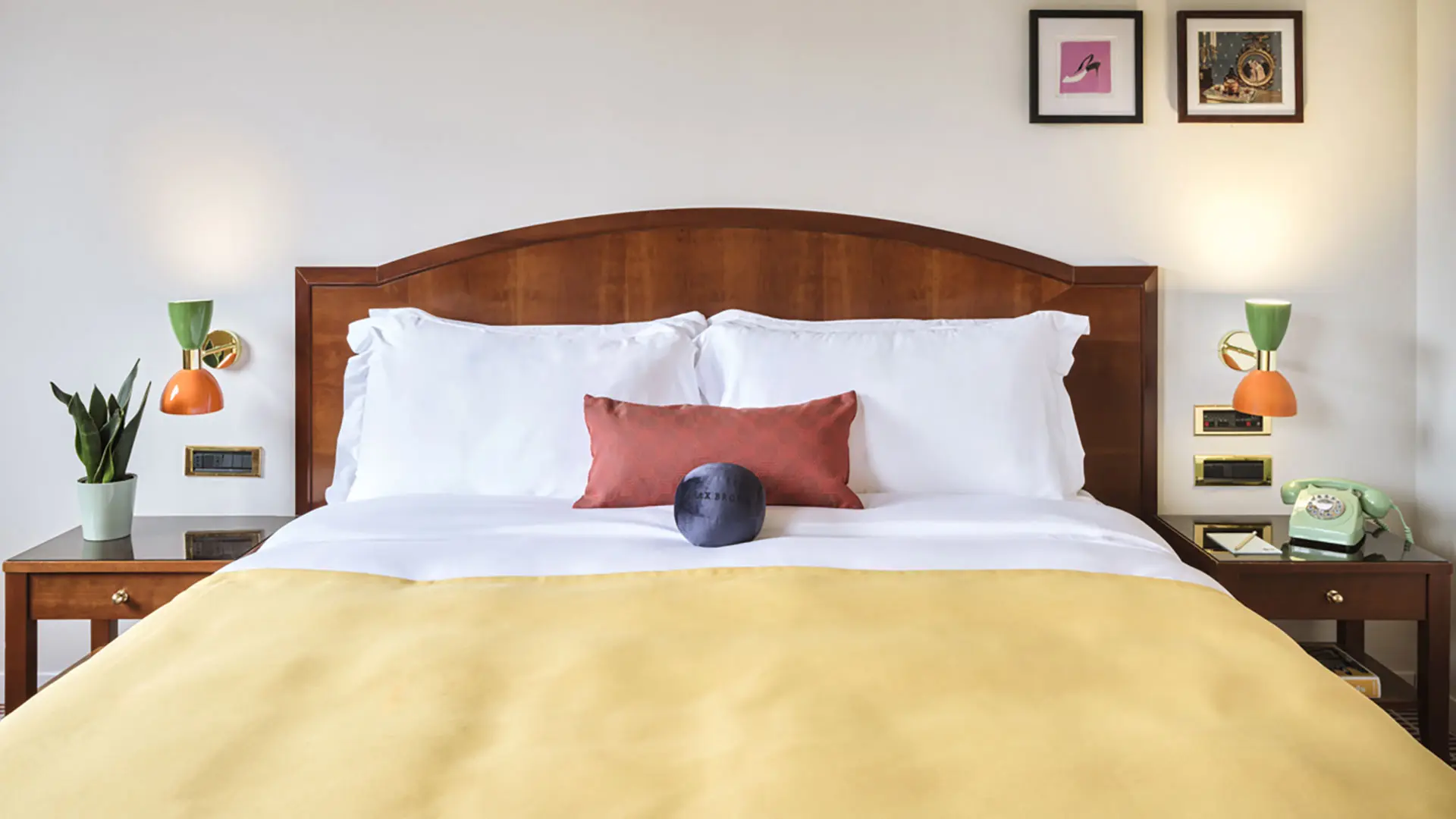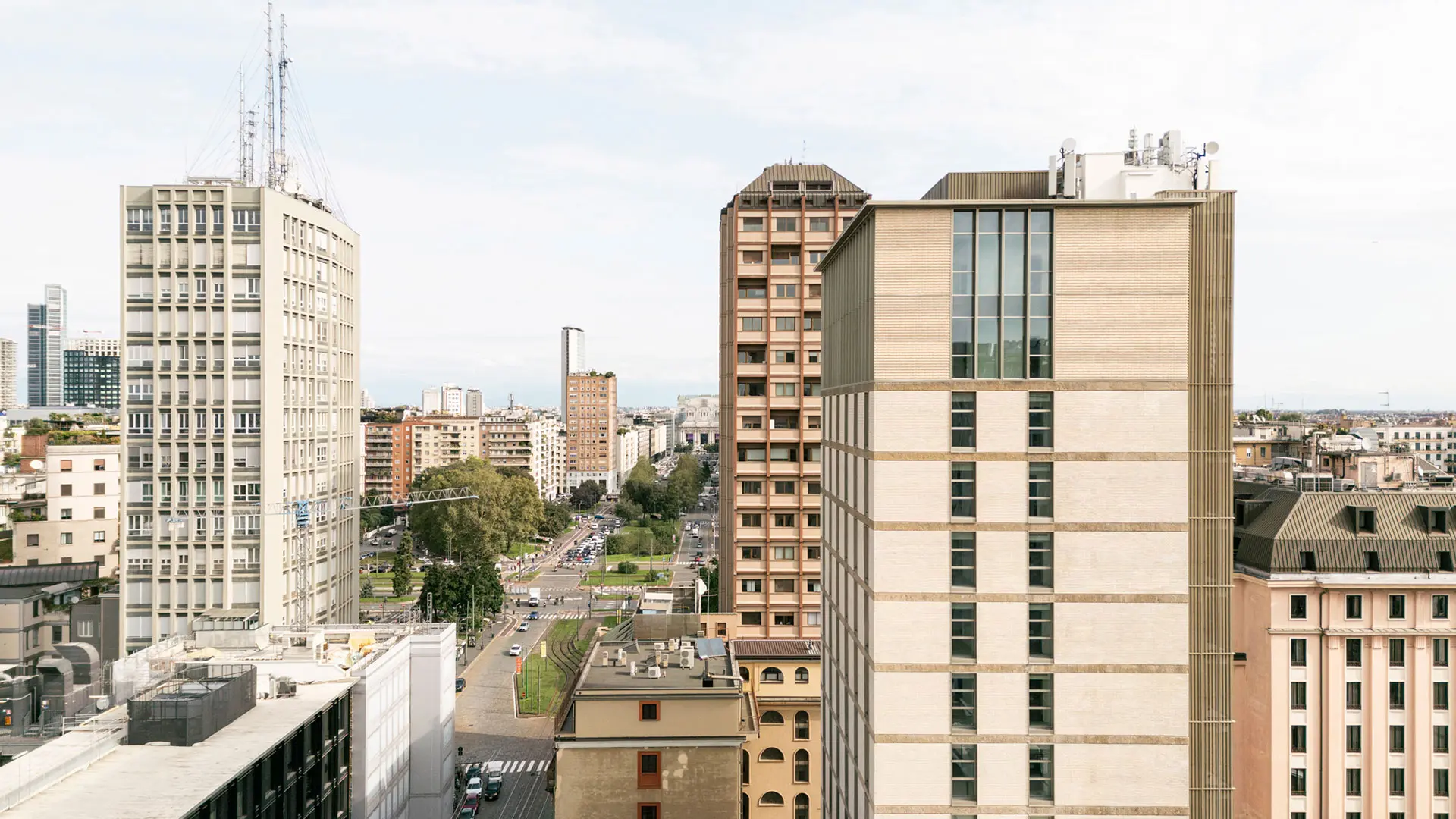In partnership with MiCodmc, a selection of establishments ripe for discovery during the 63rd edition of the Salone del Mobile.Milano, from 8th to 13th April
Sustainability in the balance sheet for furniture-makers
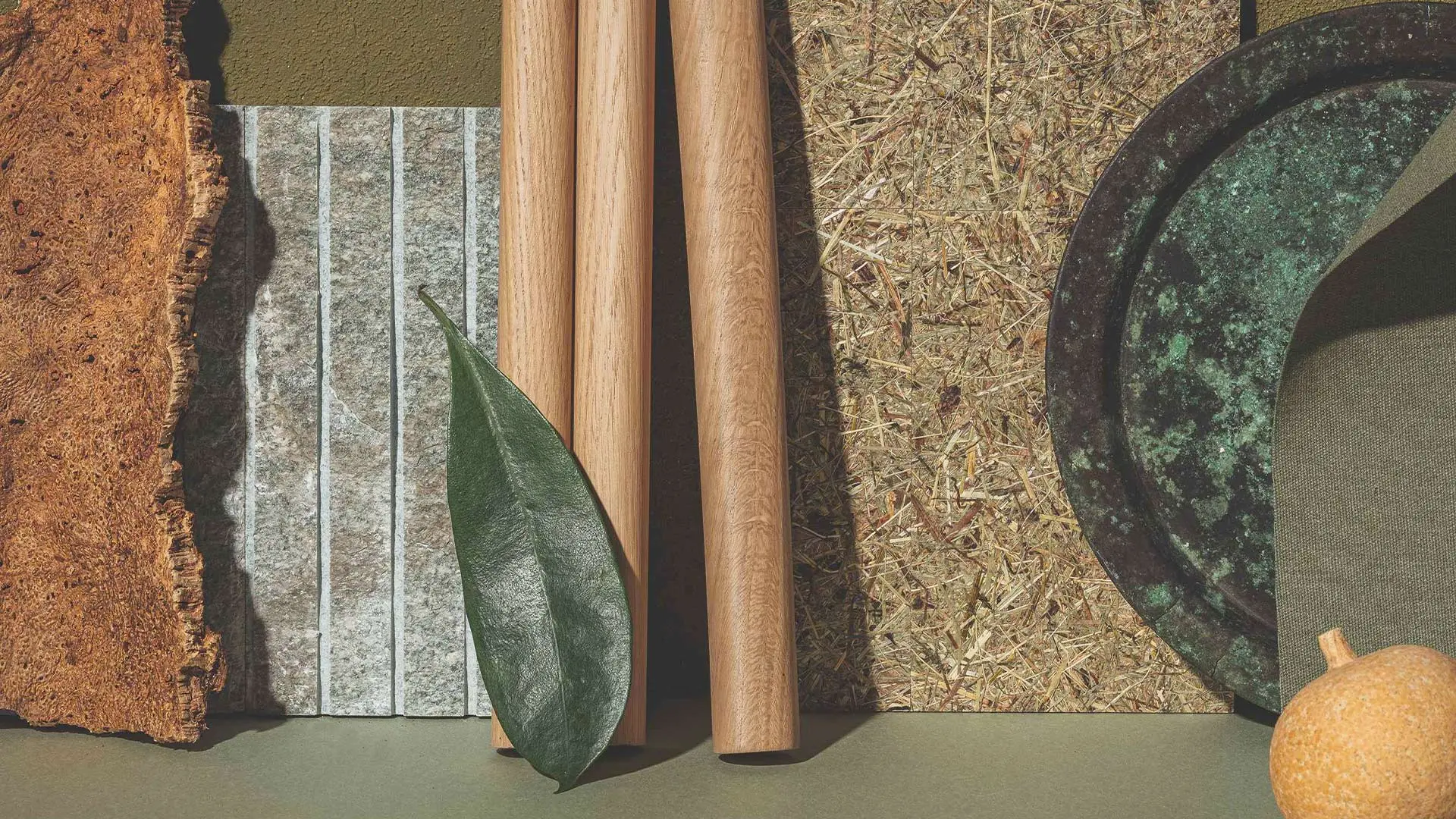
Arper, Moodboard
Traceable materials, products devised to be recycled, clean energy and social initiatives: in the pages of reports and financial statements, Arper, Visionnaire, Florim, Artemide, Flos recount their green strategies
The last decade has recorded a marked increase in the different options for budgeting for sustainability across companies and industrial sectors. Whether it’s called a sustainability balance or report, the decision to make public a company’s policy in terms of social responsibility initiatives, traceability of materials, emissions or ESG ratings (the assessment system for environmental and social impact and governance) is now also gaining ground in furniture-making. To date, there has been no obligation except for listed companies and public bodies and, from 2024, for listed SMEs.
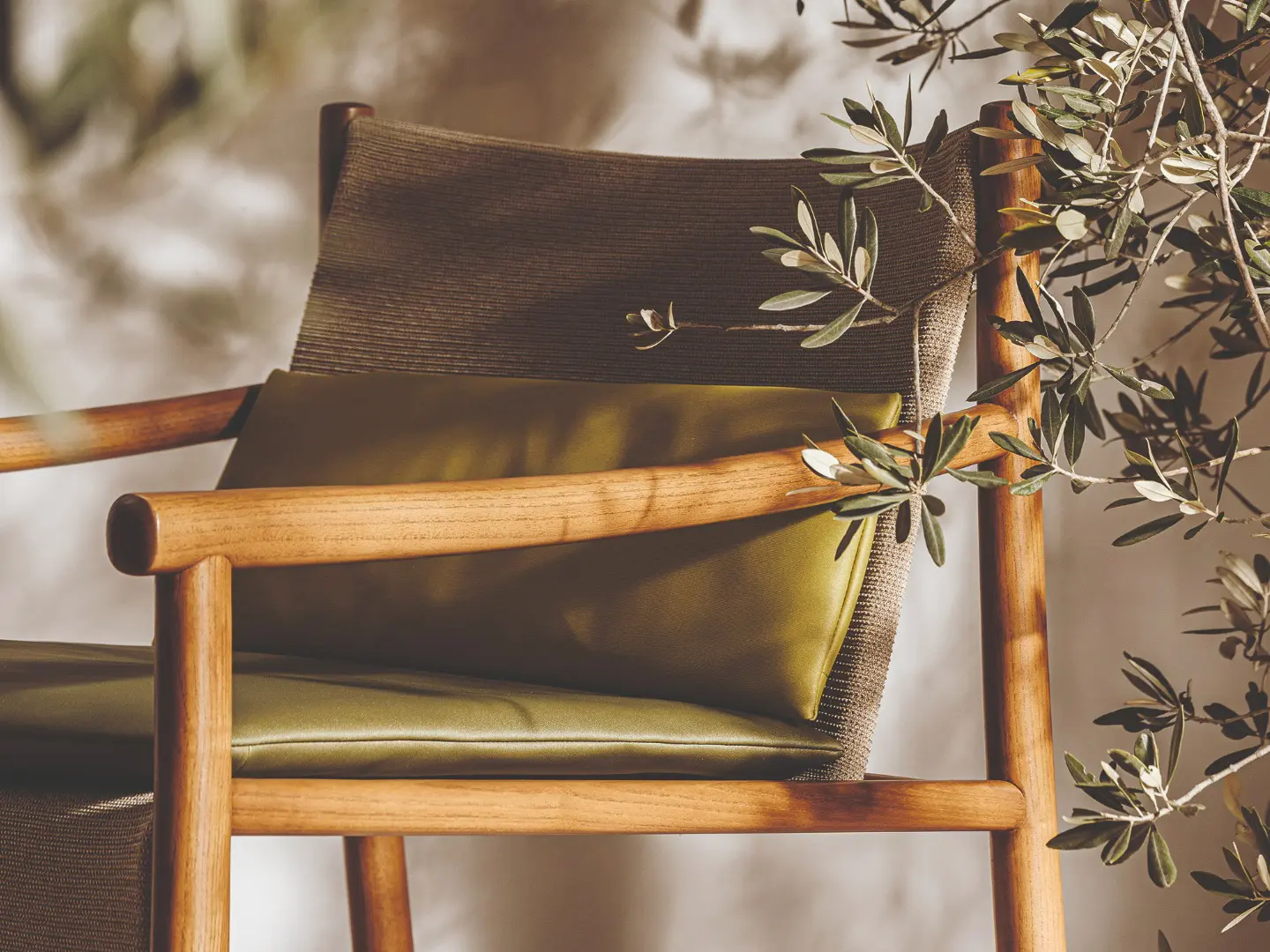
Arper, Kata, design Altherr Désile Park - Ph. Salva Lopez
“Sustainability means responsibility” reads the preface to Arper’s “2022 Sustainability Report”, the company’s first. “First of all, the sustainability report enables us to share the change that the company is making in this area, moving from a more reactive and compliance-oriented approach to a more proactive and strategic one,” explains Andrea Mulloni, Head of Sustainability at Arper. “It also tells our internal and external stakeholders, in a coherent and structured document, about everything we do in the field of sustainability, including projects, long-term goals and our vision for the future.” The highlights, Mulloni continues, are mainly two. “The first is the impact assessment, which companies will be obliged to publish from next year (GRI 2021), but which we have anticipated. This is of fundamental importance to understand the value of our actions and put a strategy in place.” The second is the in-depth analysis of emissions and includes two years of scope 1, 2 and 3, with a view to a policy aimed at reducing emissions by 2030. The greenhouse gas emissions of companies and organizations are divided internationally into four categories called scopes, namely direct emissions, indirect emissions from energy consumption and finally indirect emissions linked to the value chain. “For us, transparency is fundamental, both out of honesty towards our stakeholders and to enable companies to learn from each other. Sustainability is a young science that needs to grow fast. And there’s only one way to grow fast: to work together and share best practices.”
Visionnaire, which published its 2022 report in September, is also moving in a similar direction with its sustainability report. Having become a Benefit Corporation in December 2021, the company aims to promote positive change in society and the environment, making its business a pacemaker and driver of innovation. “The impact report is a fundamental step in being a Benefit Company – in fact, to become one requires a change in company statute, and since it is not regulated by third parties or subject to audit, the report establishes its tangible path,” says Eleonore Cavalli, the brand’s creative director. Among the key points, the reduction of the CO2 impact of production, as well as work on scopes 1, 2 and 3 and a calculation of emissions by geographical area. As for its products, Cavalli continues, the company considers itself a pioneer in terms of lower impact, with an approach that looks at both the manufacturing process and materials, from wood to regenerated leather and textiles. “This year, some new fabrics have been included, such as Paddington, applied to the Shibari armchair designed by Studiopepe. This was recently chosen winner of the Archiproducts Design Awards 2023 in the Sustainability category, in its ‘green’ version with upholstery made of recycled wool, frame and seat padded with polyurethane based on vegetable polyols.” Visionnaire’s commitment to the planet, Cavalli recalls, does not stop at materials but also involves production processes and distribution, with the aim of reducing CO2 emissions.
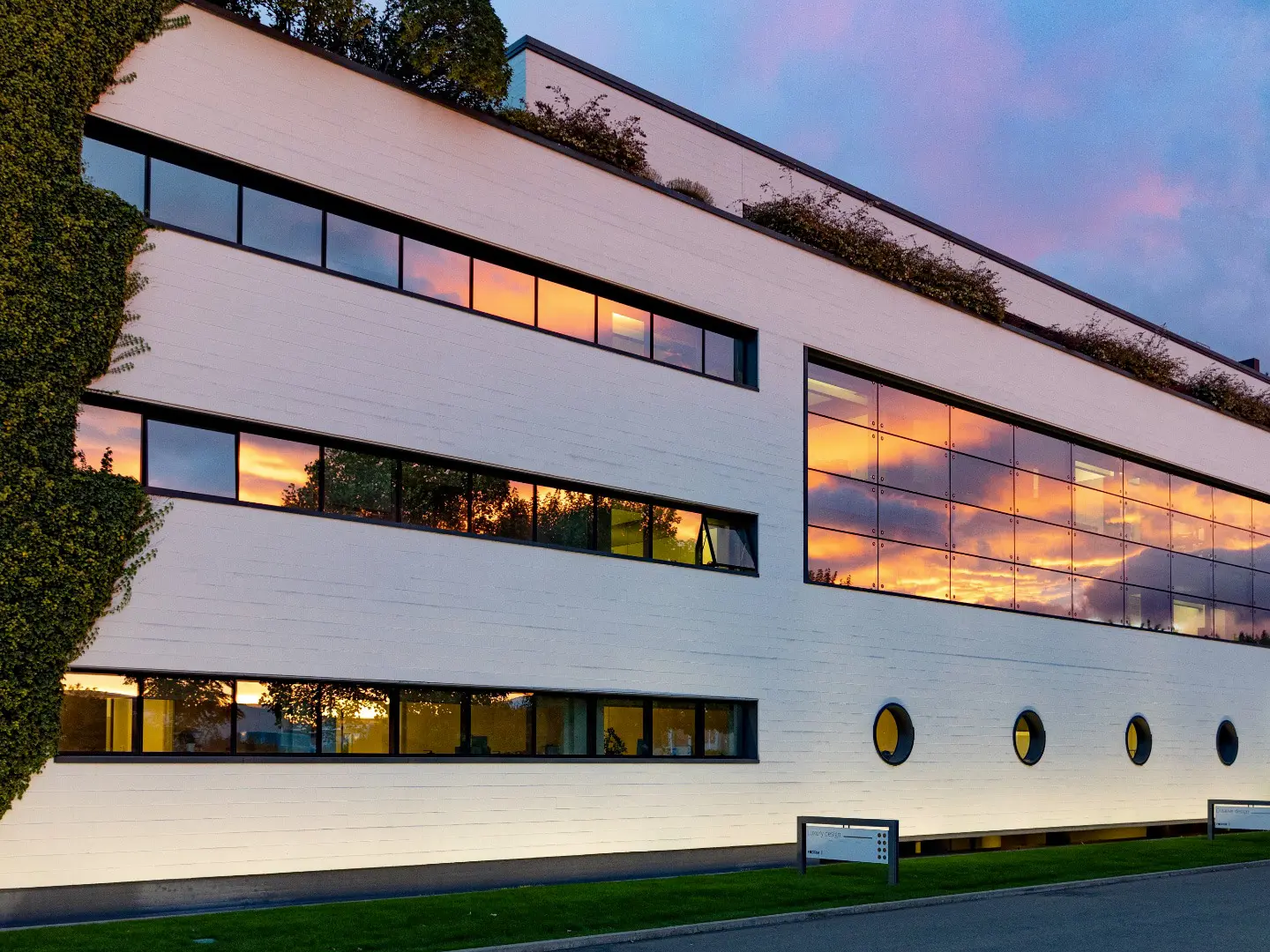
Florim, Headquarter di Fiorano Modenese
Also a Benefit Corporation, Florim has published the 15th edition of its “Sustainability Report for 2022”: “Despite the geopolitical instability, energy price increases and uncertainties about the future of the global economy that we saw in 2022, the Group’s results were accompanied by growth in all sustainability indicators, highlighting significant performance and confirming the strategic value always attributed to these fundamental factors,” said Chairman Claudio Lucchese in his letter to stakeholders. The document, as usual, reports a year of innovation, in particular its first place in the international competition “The Factory in the Landscape”, promoted by the UNESCO Clubs, for having achieved the ecological transition objectives while respecting the landscape and the environment. And also on environmental matters, he tells us about over 129,388 tons of CO2 not emitted since 2012 (18,346 in 2022), but above all a decarbonization project that involves measuring the impact of company activities to implement a strategy of progressive reduction of emissions. The other environmental focuses are an e-mobility pilot project for transporting slabs between the Mordano and Fiorano plants, the implementation of a new photovoltaic system and the recovery of 100% of both raw production waste and wastewater in all plants. Finally, activities in the field of social responsibility continue, from corporate and territorial welfare to summer camps for employees’ children, up to a new collaboration with the MAXXI Museum in Rome, following the one already established with the Peggy Guggenheim Collection in Venice.
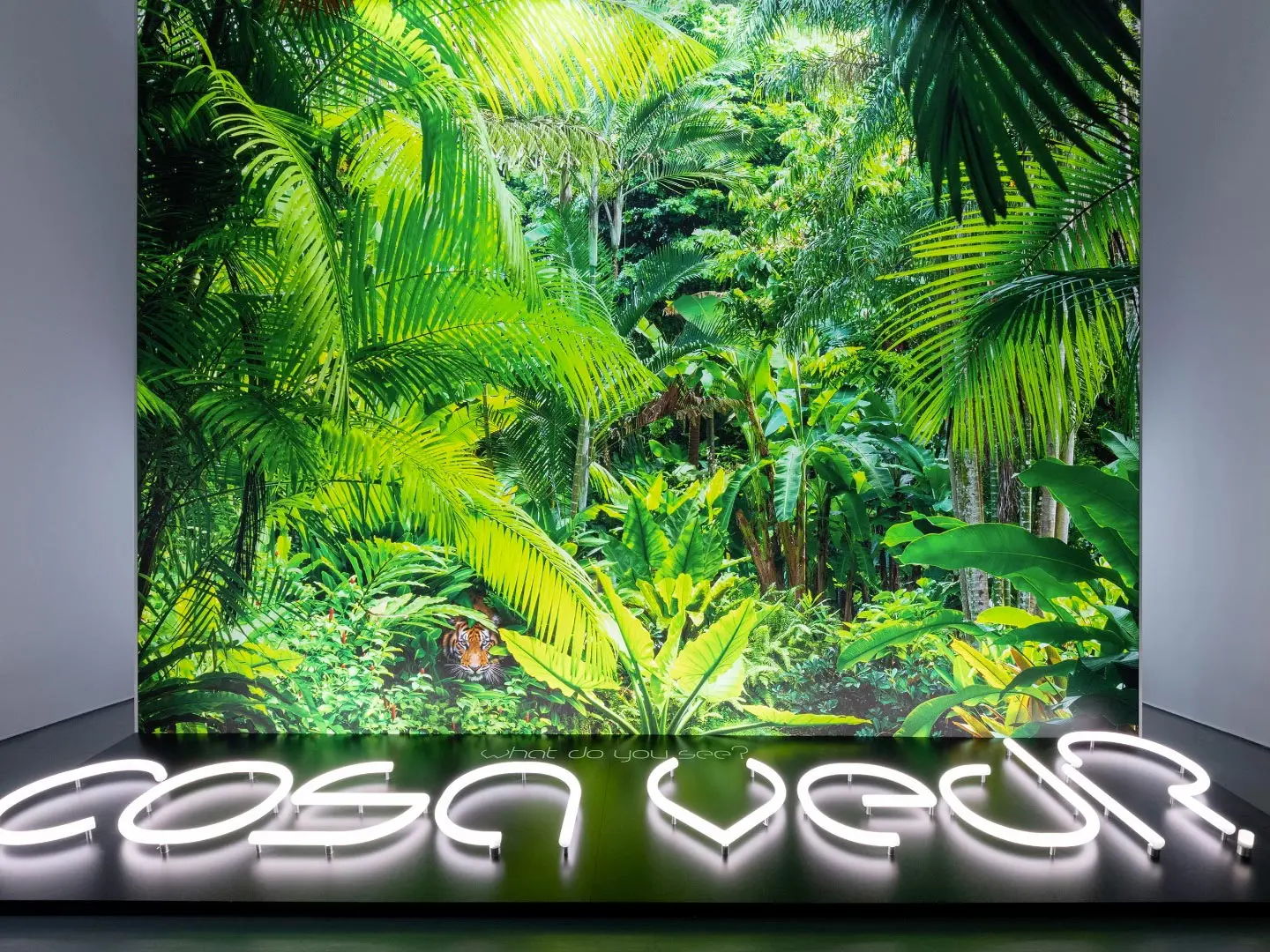
Artemide, Alphabet of Light, design BIG Architects
Since 2018, Artemide has also been assessing its performance with a Sustainability Report: “Light is energy, it is a good of and for everyone. It is a fundamental element that follows the rhythms of our lives and must do so sustainably, also educating people to an aware use of lighting, in which each of us has to be responsible for our own light,” explains Carlotta de Bevilacqua, the brand’s CEO. “We need to have an ethical approach to the project, use fewer materials, less energy, and design a better alternative to what already exists.” And the latest sustainability report, published in November, testifies to this approach through some specific data, such as a 72% reduction in indirect CO2 emissions. Other interesting data are related to the Italian and Hungarian production units, which work with 100% renewable energy. In particular, a photovoltaic system has been built at the Pregnana Milanese site capable of guaranteeing some 25% of energy needs. Finally, the issue of waste: waste sent for recovery, recycling or reuse has risen to 90% of the total. Artemide’s production is fully involved: “The responsibility we have when we tackle a new project is to interpret the future in the present and manufacture products able to last over time,” continues de Bevilacqua. And in line with its objectives, in 2022 the lighting brand launched the development of an LCA-tool (Life Cycle Assessment). Starting from the analysis of the Alphabet of Light family, it will make it possible to measure and assess the environmental impacts of this and other product families to guide design choices increasingly aimed at circularity.
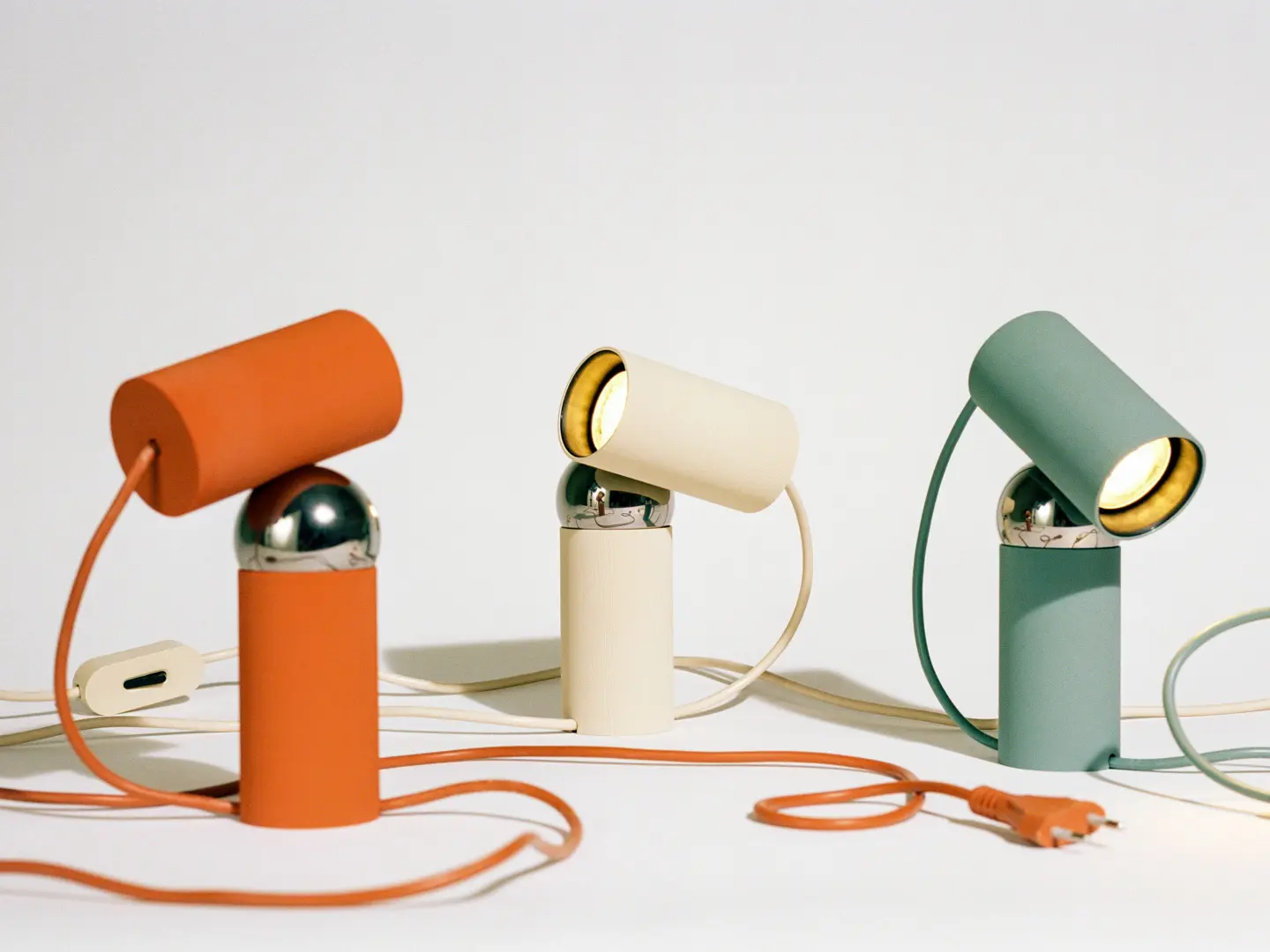
Flos, Bilboquet, Philippe Malouin - Ph. Leonardo Scotti
In keeping with the Eco-Design Framework shared with all the other companies belonging to the Design Holding, Flos also pays particular attention to the life cycle of its products, starting with timeless, reliable and durable designs that can be dismantled, so minimizing the use of raw materials, and maximizing their disposal or extending their life cycle. In between, attention to materials, components, procurement, production and logistics. This year, during Milan Design Week, the brand presented Bilboquet, a table lamp designed by Philippe Malouin, also made of a polycarbonate of biological origin and certified for International Sustainability & Carbon Certification- “All its parts can be dismantled; the materials used do not receive superfluous secondary finishes and the body of the lamp is not subjected to an anti-corrosion galvanic coating, but it is given a PVD (Physical Vapor Deposition) surface treatment: a subtle innovation combining quality and sustainability,” the company explains. Since 2017, the brand has issued a sustainability report that tells the story of its numerous ESG initiatives undertaken at a social, production, distribution and environmental level. “Flos has drafted the latest sustainability report presenting important results: 92% clean electricity produced from renewable energy and a reduction of almost 30% in CO2 emissions, in line with the directives of the 2030 Agenda for Sustainable Development.”


 Sustainability
Sustainability




